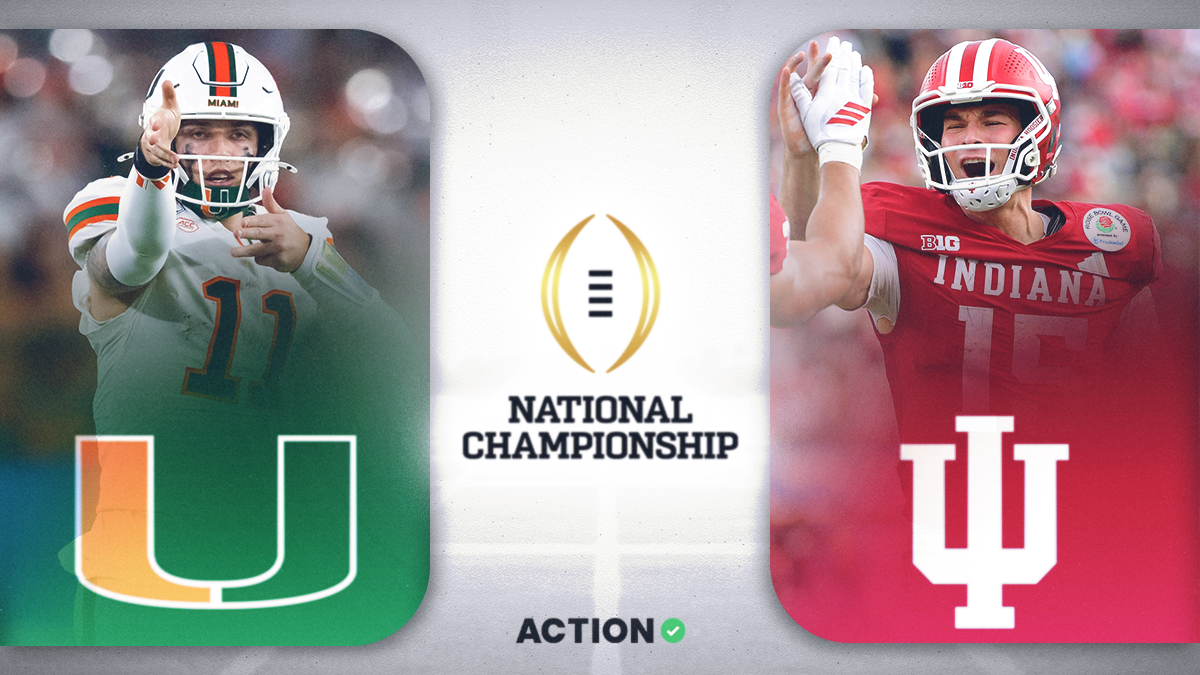Florida State has scheduled a Board of Trustees meeting Friday, when the school is expected to officially begin the process of pursuing an exit from the ACC, sources told Action Network.
The school has not notified the ACC of its intention to leave, sources said.
ACC’s by-laws require teams to provide at least one year’s notice, so the earliest FSU could leave the league would be June 30, 2025, a source said.
To leave the ACC, Florida State must pay an exit fee — estimated at $120 million — and navigate a way out of the ACC’s supposedly ironclad Grant of Rights, which runs through 2036. That could cost FSU up to an additional $360 million.
For more than a year, Florida State officials have discussed with key stakeholders the possibility of starting the process to leave the ACC. Over the summer, FSU considered starting the process to leave the ACC but ultimately decided to wait until after the football season so it wouldn’t cause a distraction for the Seminoles’ football team, sources said.
Ranked No. 8 in the Preseason AP Poll, FSU became the first undefeated Power Five conference champion not selected for the College Football Playoff.
FSU currently has no official offer to join another league but is expected to be highly sought after by either the Big Ten or SEC, while the Big 12 also is a possibility, sources said.
“This will have an ‘Oppenheimer-like’ ripple effect (throughout the college landscape),” an industry source said.
If Florida State can find an escape hatch out of the ACC’s Grant of Rights, it could trigger the exits of Clemson, Miami, North Carolina, NC State, Virginia and Virginia Tech, sources said.
The Seminoles’ decision drastically impacts the college football landscape by accelerating even more realignment, this time among the sport’s two behemoths: the Big Ten and SEC.
The Big Ten, which adds USC, UCLA, Oregon and Washington in 2024, “would love” to get programs in the talent-rich Southeast, sources said.
While the Seminoles’ snub by the College Football Playoff selection committee may have expedited Florida State’s decision to proceed with leaving the ACC, the Seminoles have been frustrated by the ACC’s disparity of revenue compared to the SEC and Big Ten and the league’s decision to add Cal, Stanford and SMU in 2024, sources said.
In September, Action Network reported one reason the ACC added Stanford, Cal and SMU is that ESPN’s media rights deal with the ACC allows ESPN to renegotiate if the league drops below 15 members (including Notre Dame).
Concerned with the potential future departures of FSU, Clemson and UNC — all three schools voted against expansion — the ACC wanted to add Power Five schools now as opposed to adding Group of Five schools later to maintain the required membership number.
In July, Florida State president Richard McCullough was very vocal about the Seminoles’ future in the ACC.
“We are not satisfied with our current situation,” McCullough said in a Board of Trustees meeting. “We love the ACC. Our goal is to stay in the ACC, but to stay in the ACC under the current (media rights) situation is hard for us to figure out how we remain competitive unless there is a major change in revenue distribution within the ACC.”
Added FSU trustee Drew Weatherford: “It's not a matter of if we leave (the ACC), but how and when we leave.”
The when was answered, but the how is still not clear.

Besides FSU, the most likely schools to leave the ACC and challenge the Grant of Rights are Clemson, Miami and North Carolina, sources said. If several schools are fleeing the ACC, independent Notre Dame — which is an ACC member in all sports but football — might reconsider its commitment to the league.
The Irish are contractually obligated to join the ACC if they decide to join a league in football before 2036. So, Notre Dame also would have to get out of its ACC contract.
North Carolina athletic director Bubba Cunningham told reporters Joe Ovies and Joe Giglio this summer it’s unknown exactly how much it would cost to get out of the ACC’s Grant of Rights.
“The number I say is in question is the Grant of Rights,” Cunningham said on the Ovies & Giglio podcast. “Can I buy back the Grant of Rights? … Let’s say that ($360 million) is the number. My point is we would go to court and argue, ‘I can’t pay that’ or ‘I shouldn’t pay that.’ The ACC would say just give us ‘X million dollars’ to get out. That number is not known.”
FSU, and literally every ACC school, has had its lawyers visit the ACC’s headquarters in Greensboro, North Carolina, to dissect and review the ACC’s Grant of Rights.
The ACC schools have been looking for any way out of the 20-year media rights deal — that has 13 years remaining — that puts the schools about $30 million annually behind the SEC and Big Ten.
The Seminoles are confident there's an escape path that would allow them to leave the league, sources said.
But where? The Big Ten or the SEC? The Big Ten’s No. 1 expansion target remains Notre Dame, but the Irish seem steadfast in remaining an independent.
The Big Ten also has “significant interest” in several ACC schools, most notably Florida State, sources said.
Starting in 2024, the Big Ten’s 18 members, including USC, UCLA, Oregon and Washington, are all Association of American Universities (AAU) members except for Nebraska. The Huskers were AAU members when they received an invite to join the Big Ten in 2010 but lost their AAU status in 2011.
Florida State is not an AAU member. However, AAU membership is “not a requirement,” to join the Big Ten, a Big Ten source told Action Network. “Maybe (AAU status) is a preference, but solid academics are measured a variety of ways,” the source said.
In the SEC’s most recent expansion, the league added schools in states without existing members. However, that changed with Texas joining Texas A&M in the SEC in 2024.
SEC commissioner Greg Sankey has said there's nothing in the league’s by-laws or any “gentlemen’s agreement” that prohibits adding schools in a state with existing members.
The SEC already has Florida, so it may be hesitant to add Florida State. However, would the SEC pursue Florida State so that its biggest rival — the Big Ten — couldn’t land the Seminoles?
And, a source said, don’t discount the bitter rivalry between ESPN and FOX, which would love to add a Florida market to the Big Ten that features markets in Los Angeles, Chicago, New York and throughout the Midwest.
“There’s no way the SEC wants FOX and the Big Ten to plant a flag in Florida by adding FSU and Miami,” a source told Action Network.
At last summer’s SEC’s Media Days, Sankey addressed the possibility of the SEC expanding beyond 16 schools.
“We (already) are a super conference,” Sankey said. “I'm focused on our growth to 16 (with Oklahoma and Texas). It's not been a topic for the Southeastern Conference. Do I think it's done? People say I get to decide that. We know who we are. We're comfortable with who we are.”
Sankey also has said the league is always engaged in conversation.
“The great news for the Southeastern Conference is people call and say, ‘Hey you’re doing something special,’” Sankey said. “They kind of hint around the edges. We’ll watch what happens around us. And be thoughtful but be nimble.”
In May, it was reported that seven ACC schools had conducted informal meetings to determine how unbreakable the Grant of Rights was and discussed possibly even leaving the ACC to form their own conference. Action Network identified those schools as the Magnificent 7: Florida State, Clemson, Miami, North Carolina, NC State, Virginia and Virginia Tech.
ACC commissioner Jim Phillips has repeatedly said he remains confident the Magnificent 7 schools are committed to the ACC.
“All of our schools are incentivized to make sure that we have as healthy of a financial portfolio as we possibly can,” Phillips said before the season. “After the spring, if we wouldn't have had any discussions or we wouldn't have come out with a success incentive initiative program, I may have felt differently. But the regularity of which the board is meeting now and the regularity of our ADs meeting, et cetera, and how good ESPN has been — they understand the volatility that there is, but they also are looking to grow financially based on some of their recent events.
“We all believe in the ACC. We want to continue to work together.”
McCullough and FSU athletic director Michael Alford have mentioned in past Board of Trustee meetings the Seminoles’ revenue disparity compared with Big Ten and SEC schools. Alford said ACC schools will receive $30 million less annually in media rights than Big Ten and SEC members.
“We have to do something,” Alford previously told his board. “Because we are a brand and we’re a very important brand and we drive the media value in this conference. At the end of the day, if something is not done, we cannot be $30 million behind every year compared to our peers.”
Florida State trustee Justin Roth said at a meeting earlier this year that a solution under the current ACC media rights deal is “very unlikely.”
“It leads us to 'What's next?'” Roth said. “The alternative for us staying in this conference for the next 13 years is death by a thousand cuts. Waiting is not the answer."
Alford said Florida State and Clemson combine to generate about 24% of the conference’s TV revenue.
Based on the Nielsen ratings in 2023, Florida State had the ninth-highest viewership per game, averaging 4.16 million viewers. That was the most viewers of any ACC school and even more than Notre Dame.
“Florida State currently represents 70% more viewers than the typical ACC school,” Alford said in February. “It speaks to the power of the brand. When that logo is on television, we attract eyeballs.”
When Alford’s presentation concluded in that February meeting, Board of Trustees chair Peter Collins remarked on the challenge for Florida State to compete nationally with the vast difference between the Big Ten and SEC in projected revenue.
“It’s almost impossible,” Collins said.
“It’s impossible,” Alford added.
Some industry sources believe Mission Impossible might describe Florida State’s chances to escape the ACC’s Grant of Rights before 2036.
Yet, in the past 15 years, every FBS school that changed conferences has been able to negotiate a lower exit fee and solve any Grant of Rights issues. In 2012, Maryland announced it was leaving the ACC and found a way to negotiate what the ACC said was a $52.2 million exit fee down to $31.3 million.
Typically, schools, like Maryland did with the ACC, pay about 60% of what they owe in exit fees, sources told Action Network. If that’s the case, FSU’s $120 million exit fee could get negotiated down to $72 million, not including the Grant of Rights.
Regardless of that number, Florida State’s situation is unique because no other school tried to leave a conference with more than 10 years remaining on its Grant of Rights.
Alford told his board in February that “hypothetically” it was possible for Florida State to break even within four years of leaving the ACC.
In May, the ACC’s Board of Directors passed a success incentive initiative, starting in 2024, providing more revenue to schools that reach postseason competition in revenue-generating sports. That wasn’t enough to satisfy the Seminoles.
“We’re never going to cover the entire gap (between the Big Ten and SEC), but it will allow you to be competitive,” Alford said at the ACC’s May meetings.
Ultimately, though, the unequal revenue sharing and expansion was a Band-Aid on a gunshot wound. With Florida State now challenging the ACC’s Grant of Rights, it could turn into a bloodbath.





















































